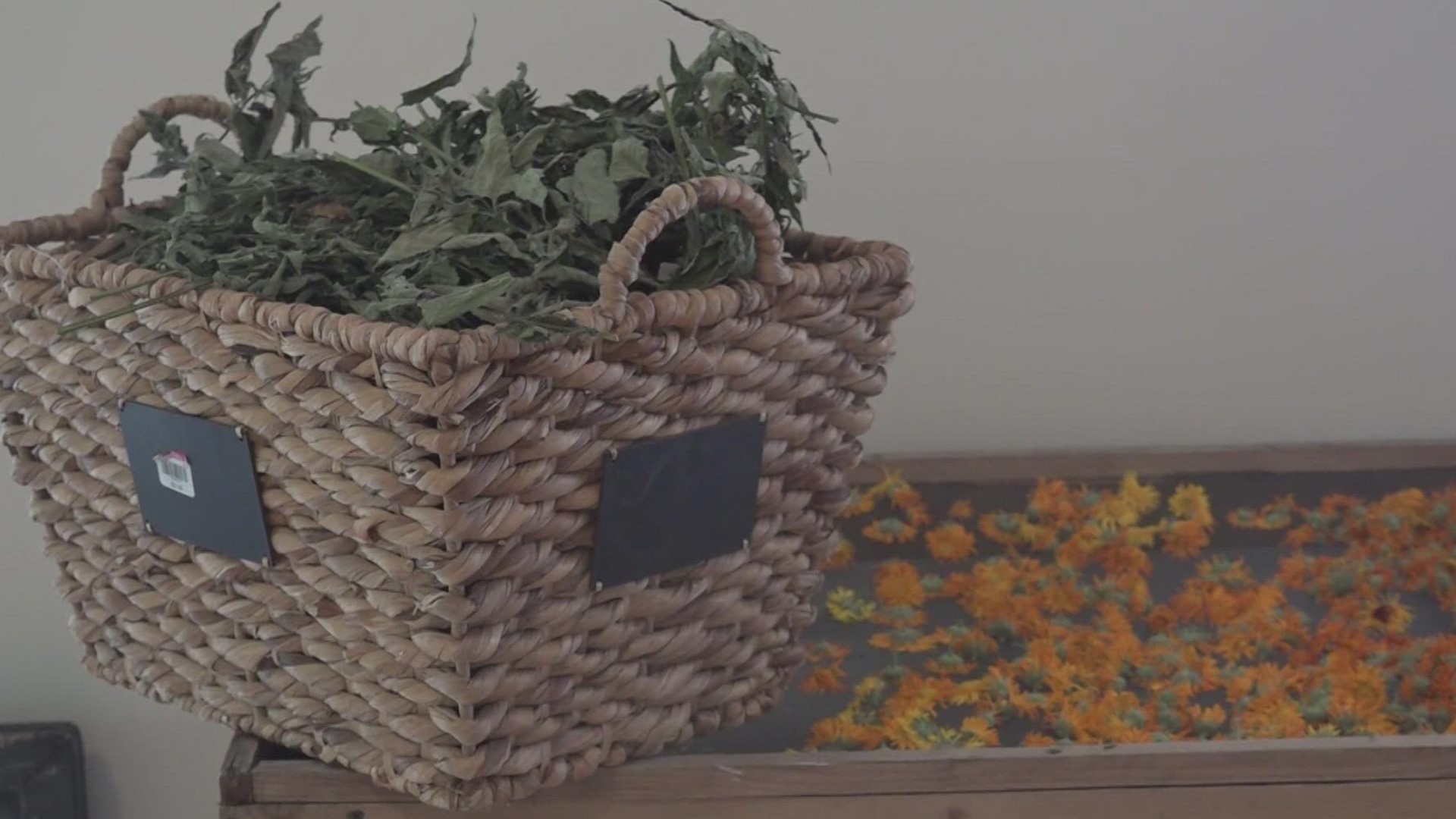INDIANAPOLIS — What if the secret to a healthier life was in your own backyard?
On the east side of Indianapolis, a school dedicated to teaching folks the practice of foraging, land stewardship and herbalism is showing people how to harness the power of plants all around us.
"Herbalism is the people's medicine. It is what helps us to feel empowered to take care of our health and it brings us back to nature. So there's a much deeper therapeutic part of making your own medicine, growing your own medicine, building a relationship with the plants on a spiritual level," said Colleen Donahoe, who also teaches yoga and mindfulness training at the school.
Partners Greg Monzel and Donahoe launched Persimmon Herb School as a way to teach people how to connect with the natural world around them.
"I don't feel like herbalism is something to protect for like an elite group of herbalists. It's something that I think everybody should be. There should be an herbalist in every village, an herbalist in every home to help the community to the best we can," said Monzel.
Herbalism, the traditional practice of using plants and herbs to alleviate stress, aches or other ailments, is nothing new. Groups of people have long celebrated and utilized plants for medicine.
That includes people indigenous to what is now Indiana, whose ongoing work is a blueprint for herbalists working in the Indianapolis area.
“Here in Indiana, we grow and we practice and we teach on the ancestral homelands of the Lenape, the Miami, the Kickapoo peoples. And, it's really their effort, their work and their love, that we are able to be here. As herbalists, it's really our responsibility to defer to them, and to honor their wisdom, their traditions,” Donahoe said.
The school has developed a hearty following on social media, where Donahoe shows followers how to make their own milkweed soda, how to harvest lavender the right way, or what the process of making their own cleavers coffee looks like.
They're all tools folks can use to help alleviate a variety of symptoms and, Donahoe said, complement other healing techniques in their life.
"I see sometimes a conflict or a tension between 'natural methods' and modern medicine. And we see a lot of overlap. Herbalism is complementary, not contradictory, to modern medicine," Donahoe said.
Since the pandemic, the pair has seen how the community reached out to their school for advice and knowledge on a variety of issues they weren't sure where to find treatment for.
"The most common things people come to me for are your everyday colds and coughs. Stuff you don't want to go to the doctor for, and you just need something to help you feel better," Monzel said.
After the overturn of Roe v. Wade, Donahoe said their school was flooded with messages from people inquiring about pennyroyal, an herb Tik Tokers touted as helpful in causing abortions, but one that can prove fatal if distributed in incorrect amounts.
"Nowadays, with modern abortion, we have much more reliable and more safe methods to terminate a pregnancy. So when we get those questions, I will point folks to aid access to get abortion pills, or to abortion funds, where they can actually take care of that in a way that's going to be much more reliable than any herbs we have available today," said Donahoe.
Overall, they point Hoosiers to essential, easy-to-grow plants that can flourish in their own backyard, native plants like purple coneflower or yarrow that people can use to feel better.
"There are so many widespread plants that you can eat, and you can make medicine from, without any effort. They grow themselves," said Donahoe.
Herbal Recipes To Try:
Milkweed blossom soda
Foraged popsicles
Yellow dock medicine tincture
Cleavers coffee
Lamb Quarter Lasagna
Egg pie

